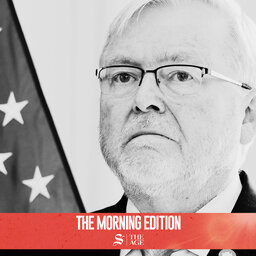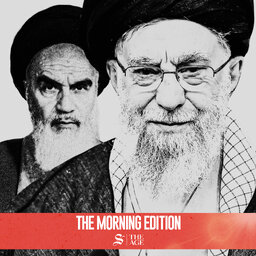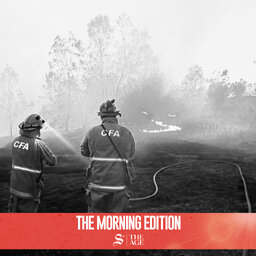What was behind Trump's f-bomb?
Donald Trump has accused Israel and Iran of already breaking a ceasefire, in a tirade against both sides as the US President left for a NATO summit in the Netherlands.
Meanwhile, multiple American media outlets are reporting Sunday’s bunker blitz did not destroy Iran’s three key nuclear sites.
So what’s next? And also, how did we get here in the first place?
Today, national environment editor and former US correspondent, Nick O’Malley on the series of events which left Iran dangerously exposed.
In 2 playlist(s)
The Morning Edition
The Morning Edition brings you the story behind the story with the best journalists in Australia. Jo…Social links
Follow podcast
Recent clips

Why Kevin Rudd resigned, and what it means for our relationship with Trump
20:53

Is the Iranian regime about to collapse?
26:36

Floods at one end, bushfires at the other. What's behind Australia's climate 'whiplash'
20:39
 The Morning Edition
The Morning Edition
